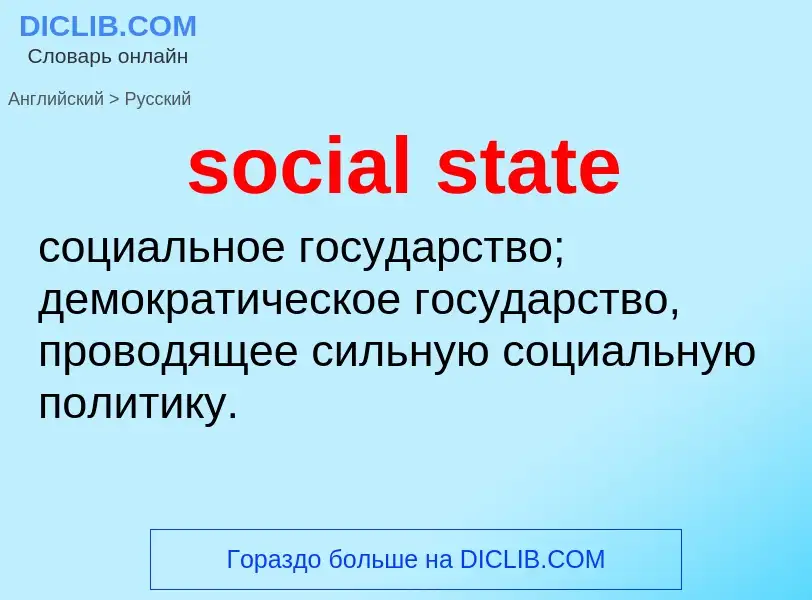Перевод и анализ слов искусственным интеллектом ChatGPT
На этой странице Вы можете получить подробный анализ слова или словосочетания, произведенный с помощью лучшей на сегодняшний день технологии искусственного интеллекта:
- как употребляется слово
- частота употребления
- используется оно чаще в устной или письменной речи
- варианты перевода слова
- примеры употребления (несколько фраз с переводом)
- этимология
social state - перевод на русский
политический термин
'государство всеобщего благосостояния'
[,welfɛə'steɪt]
общая лексика
"государство всеобщего благоденствия" (термин, применяемый для характеристики некоторых развитых капиталистических стран, в т.ч. Великобритании)
политический термин
«государство всеобщего благосостояния» (с системой социального обеспечения, бесплатным обучением и т. п.)
этология
социальная связь
['səuʃ'(ə)lintə'rækʃ(ə)n]
социология
социальное взаимодействие
взаимопроникновение культур (различных социальных групп)
Определение
Википедия
A welfare state is a form of government in which the state (or a well-established network of social institutions) protects and promotes the economic and social well-being of its citizens, based upon the principles of equal opportunity, equitable distribution of wealth, and public responsibility for citizens unable to avail themselves of the minimal provisions for a good life.
There is substantial variability in the form and trajectory of the welfare state across countries and regions. All welfare states entail some degree of private-public partnerships wherein the administration and delivery of at least some welfare programmes occurs through private entities. Welfare state services are also provided at varying territorial levels of government.
Early features of the welfare state, such as public pensions and social insurance, developed from the 1880s onwards in industrializing Western countries. World War I, the Great Depression, and World War II have been characterized as important events that ushered in expansions of the welfare state. The fullest forms of the welfare state were developed after World War II.


![Housing project in [[Bremen-Vahr]] in the 1960s, back then most tenants living in housing-projects were two-parent families with at least one parent working. In many housing projects, the composition of tenants has changed since then and now many tenant-families are headed by a single female or an unemployed male Housing project in [[Bremen-Vahr]] in the 1960s, back then most tenants living in housing-projects were two-parent families with at least one parent working. In many housing projects, the composition of tenants has changed since then and now many tenant-families are headed by a single female or an unemployed male](https://commons.wikimedia.org/wiki/Special:FilePath/Bundesarchiv B 145 Bild-F008854-0004, Bremen-Vahr, Neubaugebiet.jpg?width=200)
